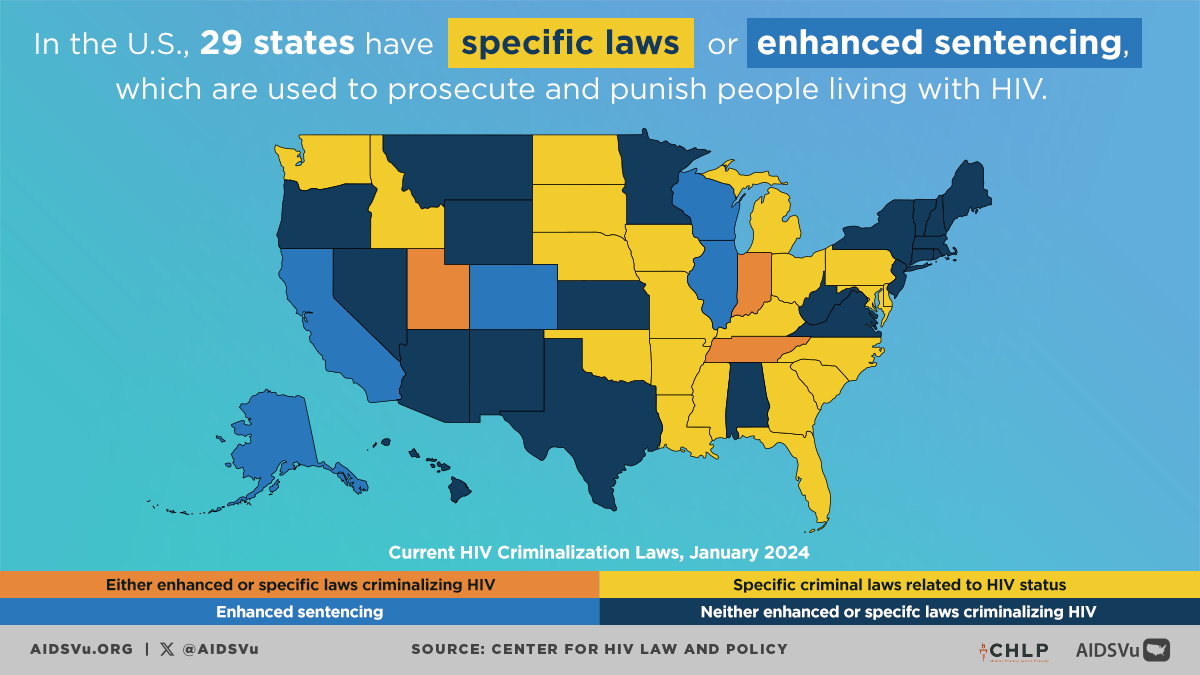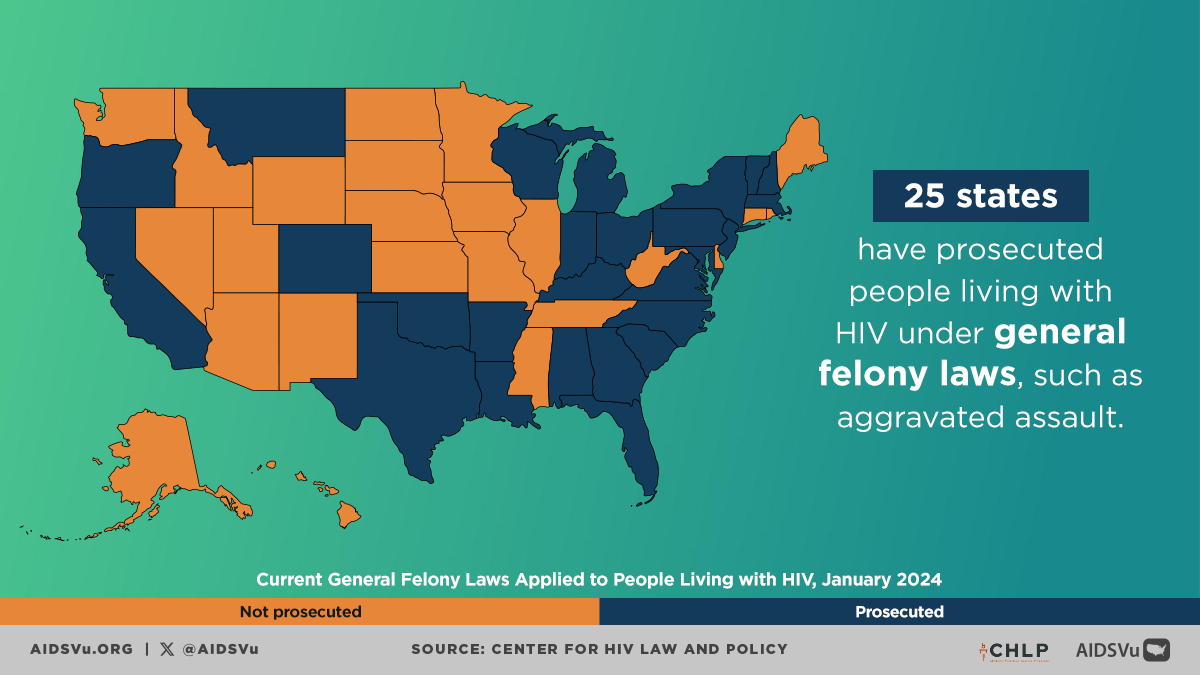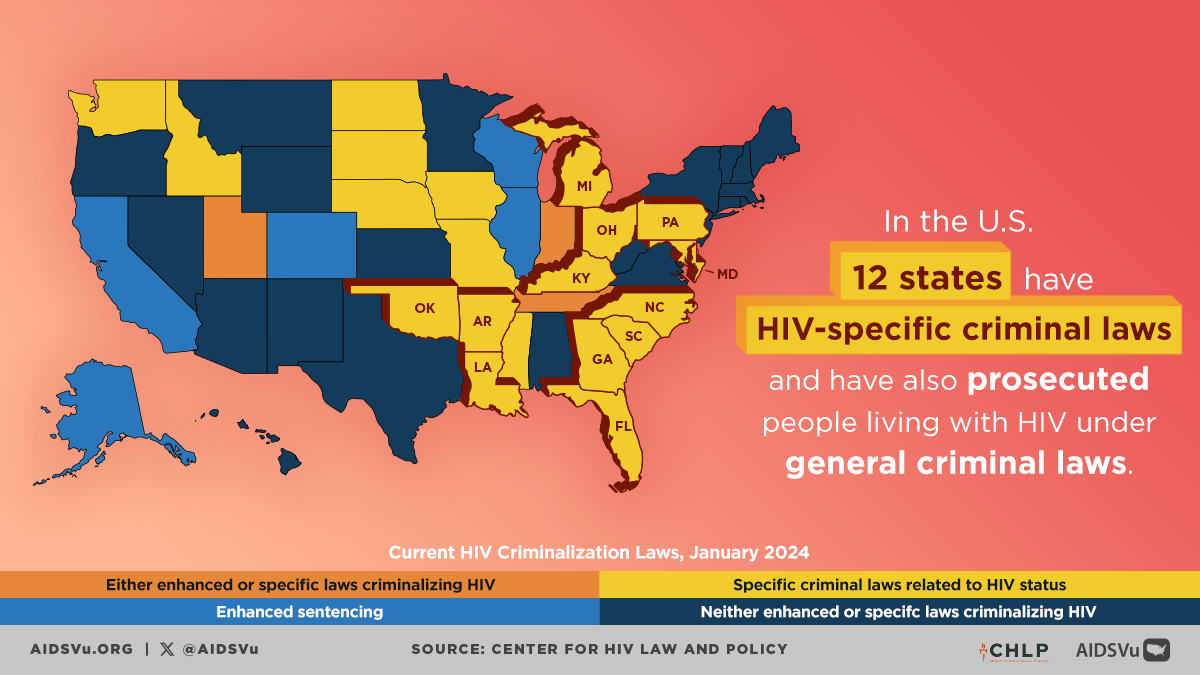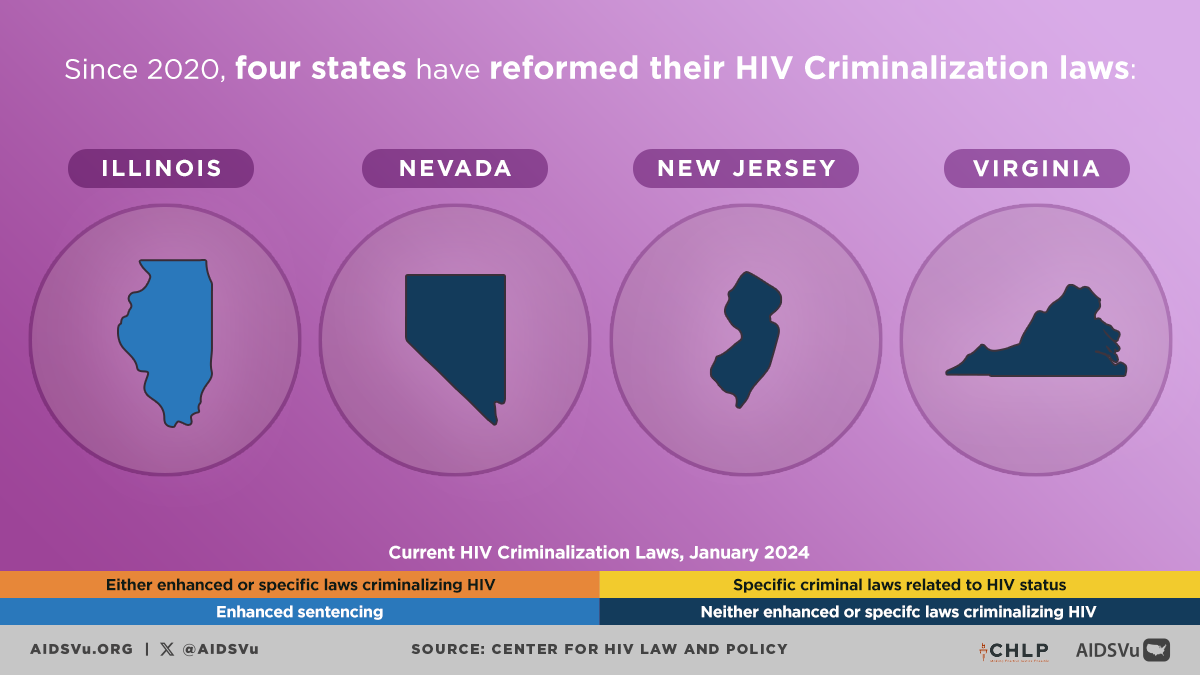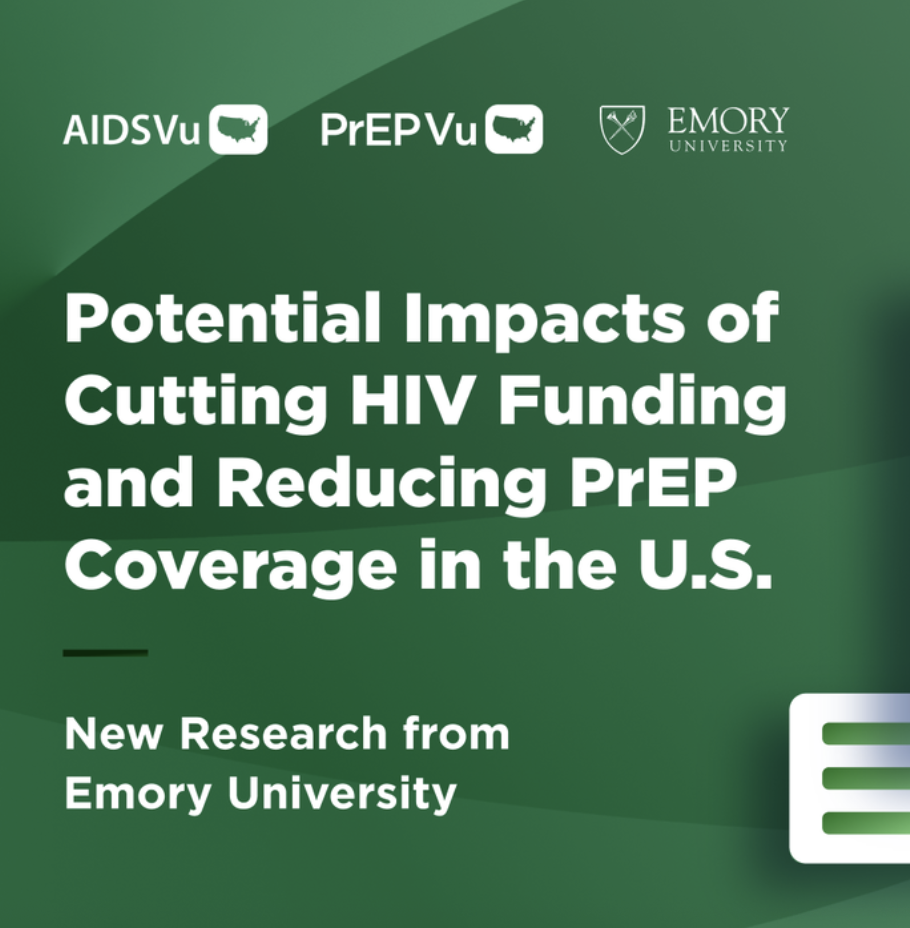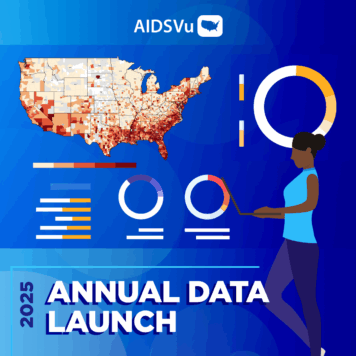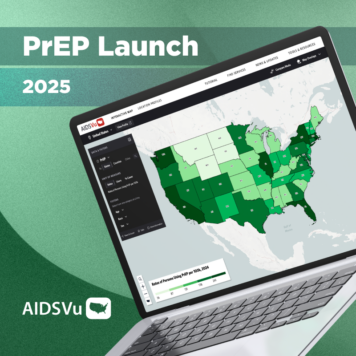The criminalization of HIV transmission or exposure dates back to the early history of the HIV epidemic. In the 1980s, states began passing HIV-specific criminal exposure laws out of fear and unfounded beliefs about HIV’s transmission routes and risks.
Currently, 29 states and two U.S. territories still have laws that criminalize specific acts by people living with HIV (PLWH). 4 states have made significant changes to their criminalization laws since 2020, but more progress is needed.
Beyond the burden they place on individual lives, these laws may discourage HIV testing, increase stigma, and exacerbate health disparities.
Similar to the HIV epidemic, HIV criminalization laws disproportionately affect marginalized populations such as communities of color, transgender women, and sex workers. These populations are more likely to be adversely affected by social determinants of health and racial inequities, which makes them more susceptible to contact with the criminal justice system and increases the possibility their HIV status will be used against them in a legal context.
AIDSVu recognizes this awareness day to draw attention to the great work of advocates and lawmakers to get rid of these outdated laws, but also to raise awareness of all the places these laws still exist.
Share Our Infographics
AIDSVu’s infographics are meant to encourage new ways of visualizing HIV criminalization to create understanding and action. Share them on social, print them out as one-pagers, and add them to your presentations.
2024 Theme
“You care about ending HIV criminalization. You just don’t know it yet.”
Social Posts
- Since 2020, Nevada, Illinois, New Jersey, and Virginia have all made significant reforms or instituted an outright repeal to their HIV criminalization laws. #HIVisnotacrime
- Currently, 29 states and two U.S. territories still have laws that criminalize specific acts by PLWH. 4 states have made significant changes to their criminalization laws since 2020, but more progress is needed. #HIVisnotacrime
- HIV criminalization laws disproportionately affect marginalized populations such as communities of color, transgender women, and sex workers. #HIVisnotacrime
- Beyond the burden they place on individual lives, HIV criminalization laws may discourage HIV testing, increase stigma, and exacerbate health disparities. #HIVisnotacrime
Social Banners
Social Graphics- HIV is Not a Crime
Email Signature
Update your email signature for HIV is Not a Crime 2024 with our graphics.
Partner Resources
Be prepared with the Sero Project’s HIV is Not a Crime Awareness Day toolkit that’s full of information, suggested best practices, social media templates, and more.
You can access the toolkit here in English or here in Spanish.
Learn From Experts

